Search titles
Displaying results 11 to 20 of 358.

Adapting for Inertia »
Delivering Large Government ICT Projects in Australia and New Zealand
Authored by: Grant Douglas
Publication date: October 2023
Despite much learning and research over many decades, large ICT software projects have continued to experience poor outcomes or fallen short of original expectations—some spectacularly so. This is the case in the Australian and New Zealand public sectors, even though these projects operate within historically developed institutional frameworks that provide the rules, guidelines and controls, and aim to consistently improve outcomes.
Something is amiss. In Adapting for Inertia, Grant Douglas questions the effectiveness of these institutional frameworks in governing large ICT software projects in the Australian and New Zealand public sectors. He also gauges the perspectives of a large number of actors in projects in both sectors and examines two case studies in detail.
The main narrative to emerge is that the institutional frameworks are in a state of inertia: they are failing to adapt, owing to various institutional factors—all of which have public policy implications. Sadly, Douglas finds, this inertia is likely to continue. If there is difficulty in changing the capacity to govern, he proposes, policymakers should look to change the nature of what is to be governed.
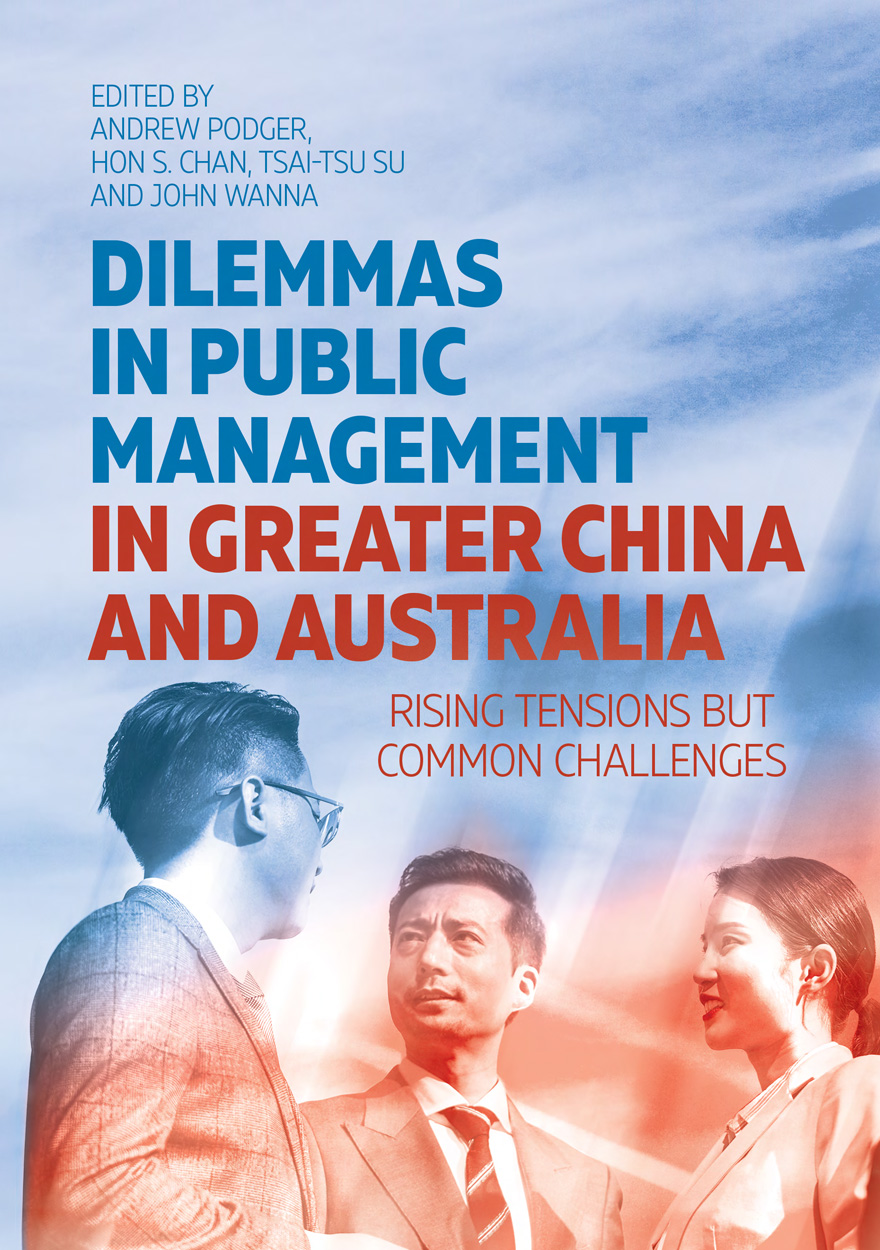
Dilemmas in Public Management in Greater China and Australia »
Rising Tensions but Common Challenges
Publication date: July 2023
This book draws on more than a decade of workshops organised by the Greater China Australia Dialogue on Public Administration, involving scholars and practitioners from Mainland China, Hong Kong, Taiwan and Australia. Although these workshops recognised the major differences in the institutional frameworks of these jurisdictions, until recently they focused largely on the shared challenges and the diffusion of ideas and approaches.
As rising international tensions inevitably draw attention to areas where interests and philosophies diverge, it is the differences that must now be highlighted. Yet, despite the tensions, this book reveals that these jurisdictions continue to address shared challenges in public administration.
The book’s contributors focus in detail on these four areas:
intergovernmental relations, including the shifting balance between centralisation and decentralisation
budgeting and financial management, including during and after the COVID-19 pandemic
the civil service, its capability, and its relationship with government and the public
service delivery, particularly in health and aged care.
This book is aimed at a wide readership, not only at those within the jurisdictions it explores. It emphasises the importance of continued engagement in understanding different approaches to public administration—confirming fundamental philosophical differences where necessary but also looking for common ground and opportunities for shared learning.
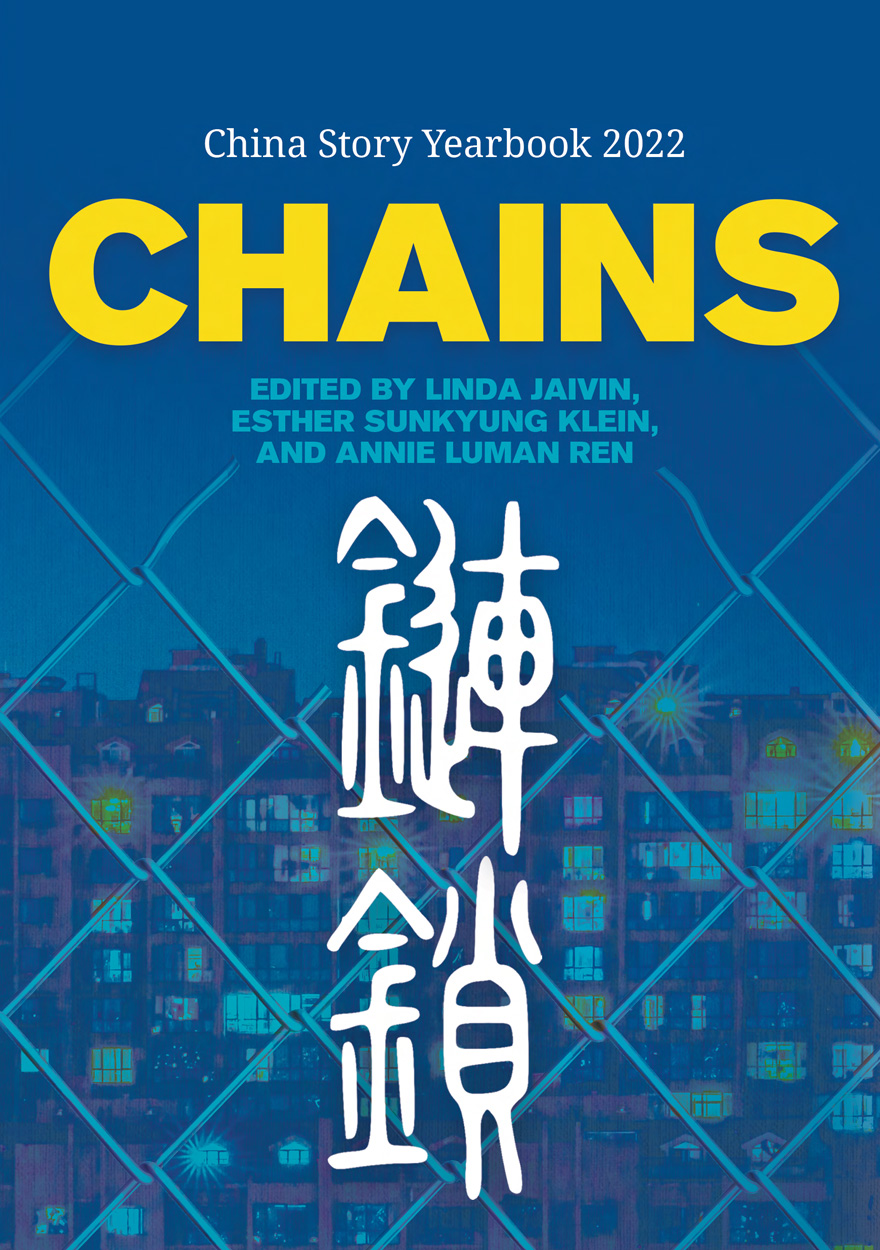
Chains »
Edited by: Linda Jaivin, Esther Sunkyung Klein, Annie Luman Ren
Publication date: July 2023
Speaking to the Twentieth National Congress of the Communist Party of China, in October 2022, President Xi Jinping reiterated his commitment to the ‘opening up’ policy of his predecessors — a policy that has burnished the party’s political legitimacy among its citizens by enabling four decades of economic development. Yet, for all the talk of openness, 2022 was a year of both literal and symbolic locks and chains — including, of course, the long, coercive, and often brutally enforced lockdowns of neighbourhoods and cities across China, most prominently Shanghai. Then there was a vlogger’s accidental discovery of the ‘woman in chains’, sparking an anguished, nationwide conversation about human trafficking. That was part of a broader (if frequently censored) conversation about gendered violence and women’s rights, in a year when women’s representation at the highest levels of power, which was already minimal, decreased even further. There was trouble with supply chains and, with the Fourth Taiwan Strait Crisis, in August, island chains as well. Despite the tensions in the Asia-Pacific, the People’s Republic of China expanded its diplomatic initiatives among Pacific island nations and celebrated fifty years of diplomatic links with both Japan and Australia. As the year drew to a close, a tragic fire in a locked-down apartment building in Ürümqi triggered a series of popular protests that brought an end to three years of ‘zero COVID’. The China Story Yearbook: Chains provides informed perspectives on these and other important stories from 2022.
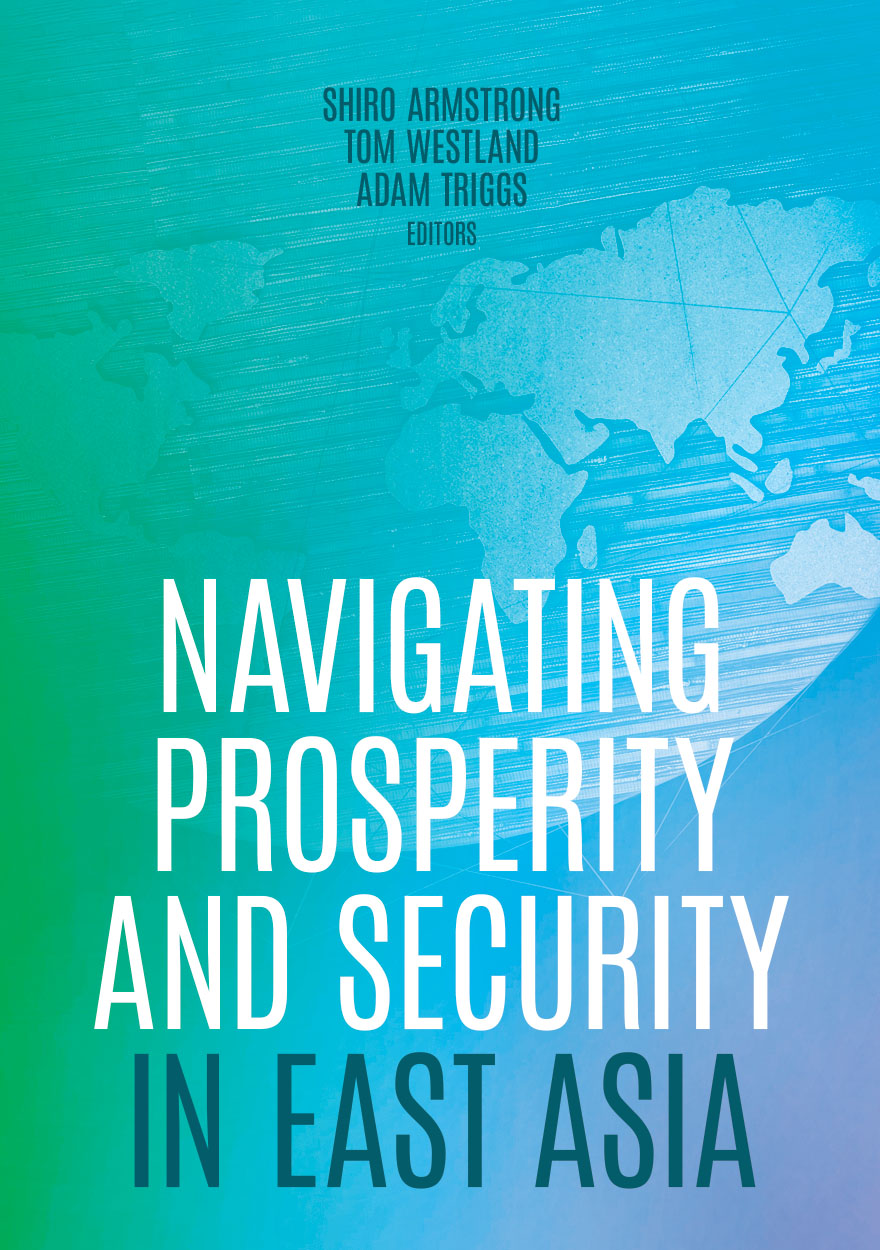
Navigating Prosperity and Security in East Asia »
Publication date: May 2023
The world’s two largest economies, the United States and China, are locked in a trade war, complicating policy choices internationally. These choices are sharper for the countries of East and Southeast Asia than they are elsewhere, because the multilateral rules-based economic order on which East Asian economic integration and cooperation is built is under threat.
Economic policy has never been separate from security considerations. For decades, the national security risks inherent in economic exchange have been mitigated under a US-led system that allowed the strengthening of economic ties, including between China and the rest of the world. But economics and security are increasingly entangled in a way that is damaging to both, creating a dangerous trade-off. Now, as global uncertainties grow, the risks of international exchange—rather than its benefits—are beginning to dominate the calculus for some policymakers.
Against this backdrop, how can Southeast Asian countries and US allies in Asia balance their security interests and their economic interests? And how can these countries, individually and collectively, broaden their policy options and deepen economic integration? This volume investigates the domestic and international dimensions of these questions.
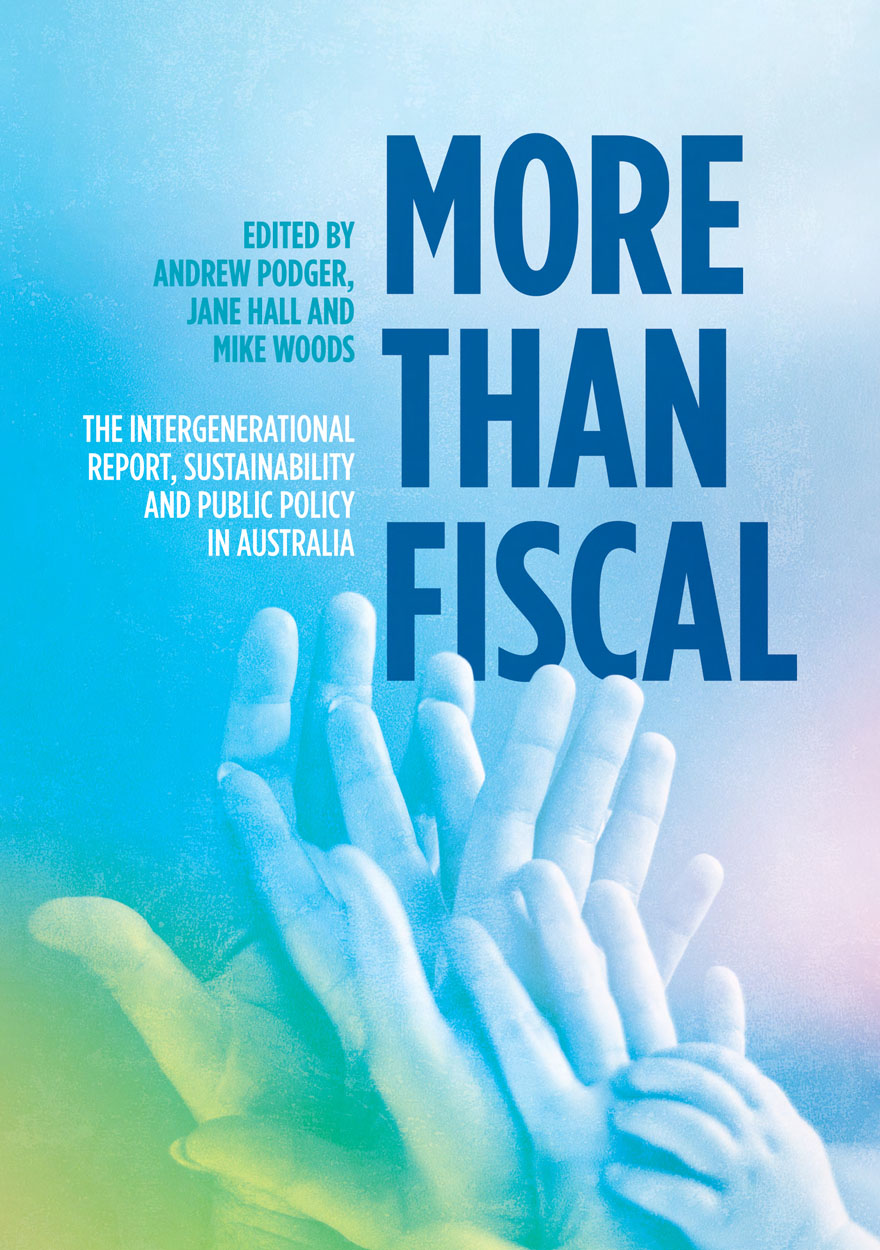
More Than Fiscal »
The Intergenerational Report, Sustainability and Public Policy in Australia
Publication date: May 2023
Every five years, the Australian treasurer is required to publish an intergenerational report (IGR), which examines the long-term sustainability of current government policies and seeks to determine how demographic, technological and other structural trends might affect the economy and the budget in coming decades. Despite these lofty objectives, the five IGRs produced from 2002 have received only muted applause. Critics say that they are too mechanical, too narrow and too subject to the views of the government of the day and that they don’t provide the intended wake-up call for public understanding of looming economic, social and environmental issues.
This analysis of the most recent IGR (2021) is based on a workshop hosted by the Academy of the Social Sciences in Australia. While finding that the 2021 IGR is an improvement on the previous report (2015), the authors identify several fiscal and broader policy issues that deserve greater attention, including Australia’s structural deficit, rising inequality and the impacts of climate change. They argue that the report fails to discuss the policies required to support greater resilience against future shocks, including the case for earlier budget repair. They propose that future IGRs be prepared with greater independence, cover all levels of government, have more transparent analysis and draw upon a wider ‘wellbeing’ approach to long-term sustainability.
This book aims to attract close attention from public officials and politicians and generate constructive debate in the community.

Made in China Journal: Volume 7, Issue 2, 2022 »
Publication date: December 2022
In 2020, Chinese Communist Party general secretary Xi Jinping pledged to ‘transition to a green and low-carbon mode of development’, as well as to ‘peak the country’s CO2 emissions before 2030 and achieve carbon neutrality before 2060’. Xi’s pledge offered a tangible example of what has come to be known as the ecological civilisation (生态文明)—the idea of engineered harmony between humans and nature that was recently incorporated into the Constitution of the People’s Republic of China. But what kind of engineering is required for sustainable transitions at this scale and pace? Through which political concepts and technical practices could such a harmonious rebalancing of China’s resource-devouring development be envisioned and achieved?
This issue of the Made in China Journal addresses these questions by borrowing political theorist John Dryzek’s rereading of the Greek myth of Prometheus. Inspired by the story of a demigod who stole the technology of fire for the sole purpose of human advancement, Prometheanism describes an eco-modernist orientation that perceives the Earth as a resource whose utility is determined primarily by human needs and interests and whose environmental problems are overcome through continuous political and technological innovation. In contrast with other environmental perspectives, Prometheanism prioritises human interests and needs over those of ecosystems or the individual needs of other lifeforms. Through this framework, we asked our contributors to offer their takes on the following questions: To what extent can Xi’s dream of an ecological civilisation be understood in terms of techno-optimism and the anthropocentrism that characterise Prometheanism? What price is China paying in its effort to transition towards a heavily engineered ‘sustainable’ market utopia?
Download for free
Not available for purchase
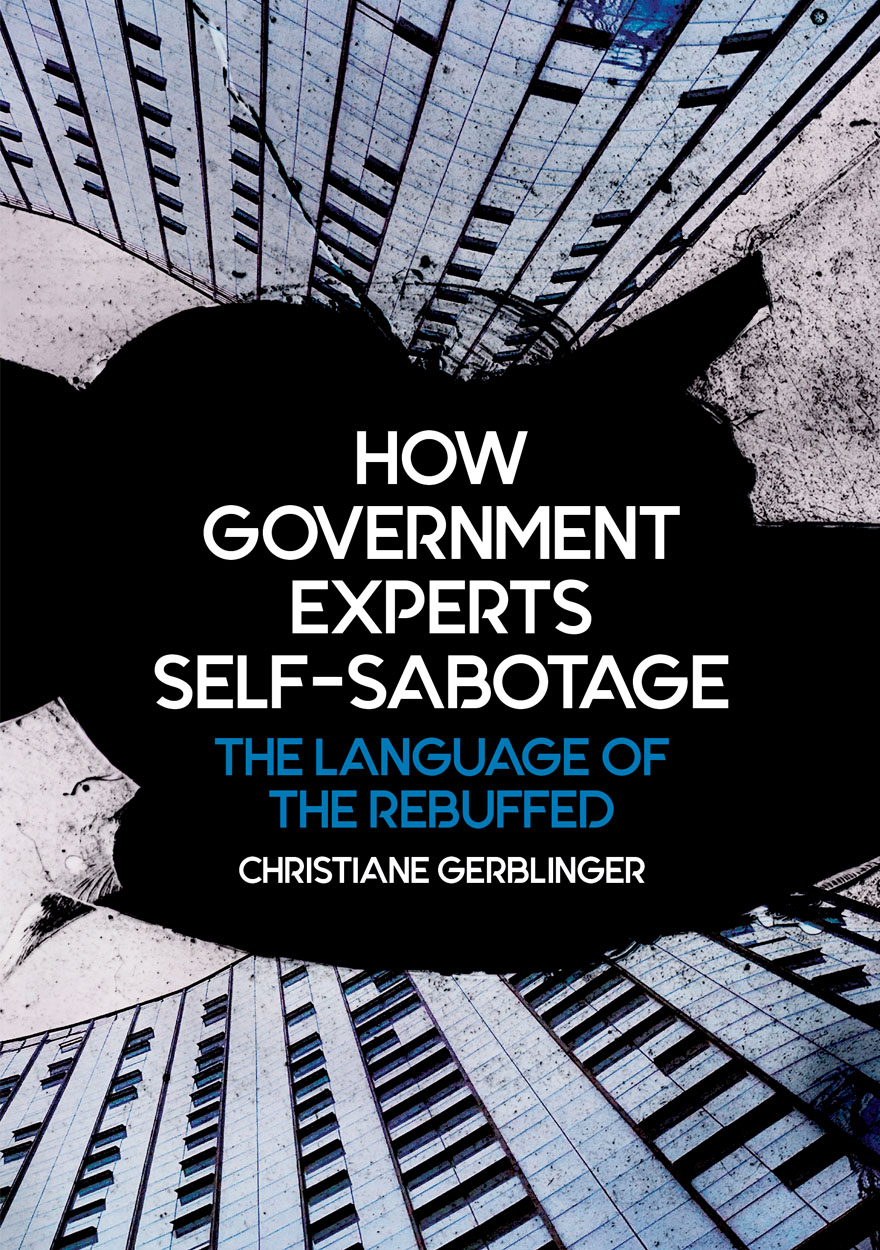
How Government Experts Self-Sabotage »
The Language of the Rebuffed
Authored by: Christiane Gerblinger
Publication date: December 2022
After official policy advice to governments is publicly released, governments are often accused of ignoring or rejecting their experts. Commonly represented as politicisation, this depiction is superficial. Digging deeper, is there something about the official advice itself that makes it easy to ignore?
Instead of lamenting a demise of expertise, Christiane Gerblinger asks: does the expert advice of policy officials feature characteristics that invite its government audience to overlook or misread it? To answer this question, Gerblinger critically examines official policy advice and finds the language of the rebuffed: government experts reluctant to disclose what they know so as to accommodate political circumstances. She argues that this language evades stable meaning and diminishes the democratic right of citizens to scrutinise the work of government.

China’s Transition to a New Phase of Development »
Edited by: Ligang Song, Yixiao Zhou
Publication date: November 2022
The Chinese economy is currently undergoing fundamental changes. In this context, the 2022 China Update examines the key characteristics of China’s transition towards a new phase of economic growth and development. This year’s update book covers a range of diverse topics that reflect the complex and changing nature of the economy. It explores critical questions: Why does China need a new development paradigm, and what is the best way to achieve it? What are China’s choices when faced with the restructuring of global industrial value chains? What key roles will domestic consumption play in the next phase of China’s development? What does the digital transformation mean for the Chinese economy? What has been the domestic impact of the Covid-19 pandemic on income inequality and labour market outcomes? What pathways exist for China in its transition towards carbon neutrality? How does China’s emissions-trading market compare with that of Europe? How will China’s carbon neutrality strategy affect the Australian economy? What are the political factors influencing bilateral trade flows between China and its trading partners? And what is at stake for China–US relations?
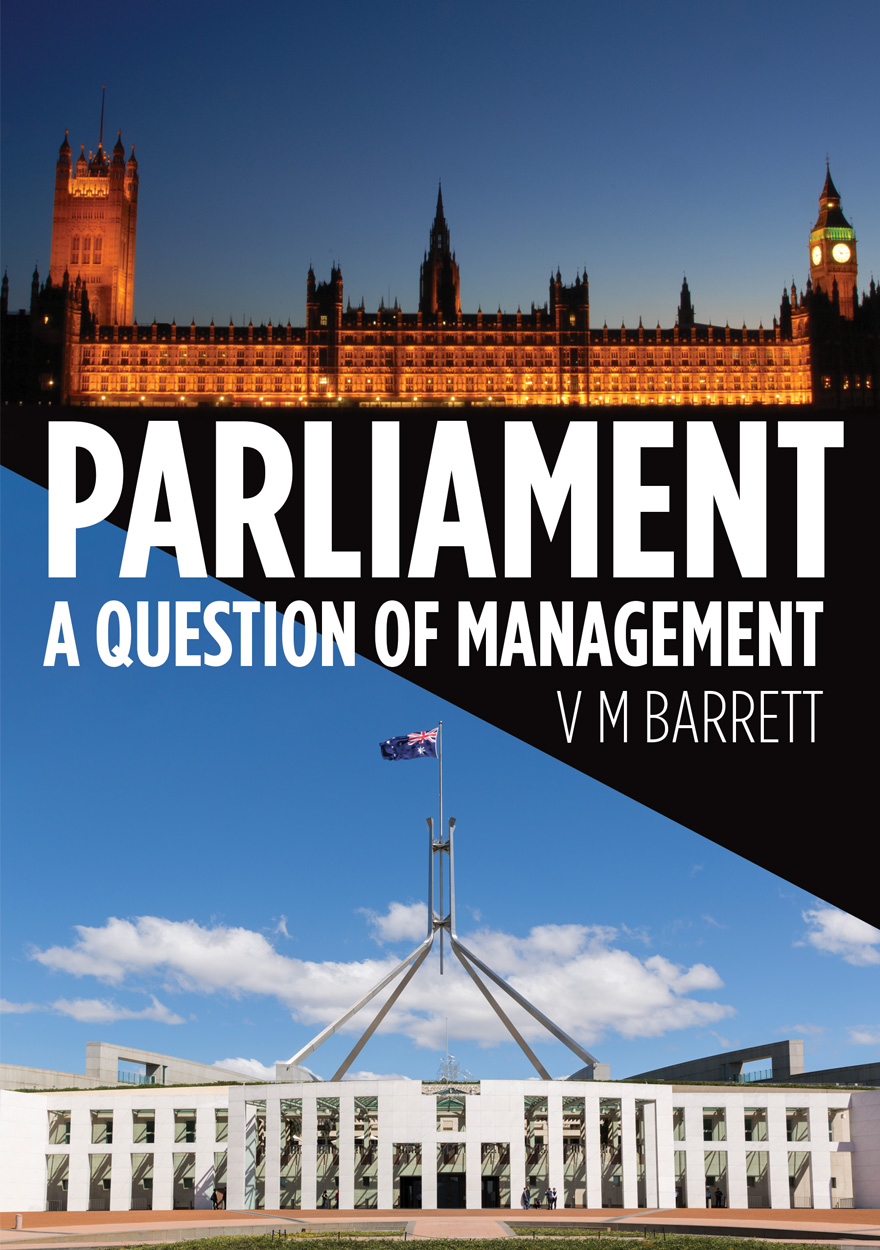
Parliament: A Question of Management »
Authored by: V M (Val) Barrett
Publication date: October 2022
For centuries scholars and practitioners have studied parliament and its potential reform from an institutional perspective. Until now, few authors have addressed in depth the internal relationships among parliamentary actors, their competing beliefs and their influence on parliament’s effectiveness. Parliament is overwhelmingly an agonistic institution, and competition for status, resources, influence and control has pervaded its administration and impeded reform.
Parliaments appear to struggle with the concept of institutional management. The doctrine of exclusive cognisance or sole jurisdiction implies that parliament, and only parliament, should retain control of its internal business and processes. But why is parliament considered to be unique among public institutions, and why do parliaments appear to resist or even defy attempts to manage them more effectively?
At a time when the public is losing confidence in governments, politics and political institutions, parliament’s role as a broker of ideas and a forum for deliberative policymaking is under threat. In an institution where no one has overall authority and direction, staying relevant and managing public expectations present major challenges for its members and administrators.
This book examines parliamentary management in the national parliaments of Australia and the United Kingdom. Without claiming to be a ‘how to’ book, it attempts to provide a relatable account of how parliamentary officials and members of parliament carry out their inherently complex roles and how they might be assisted by contemporary public management approaches.
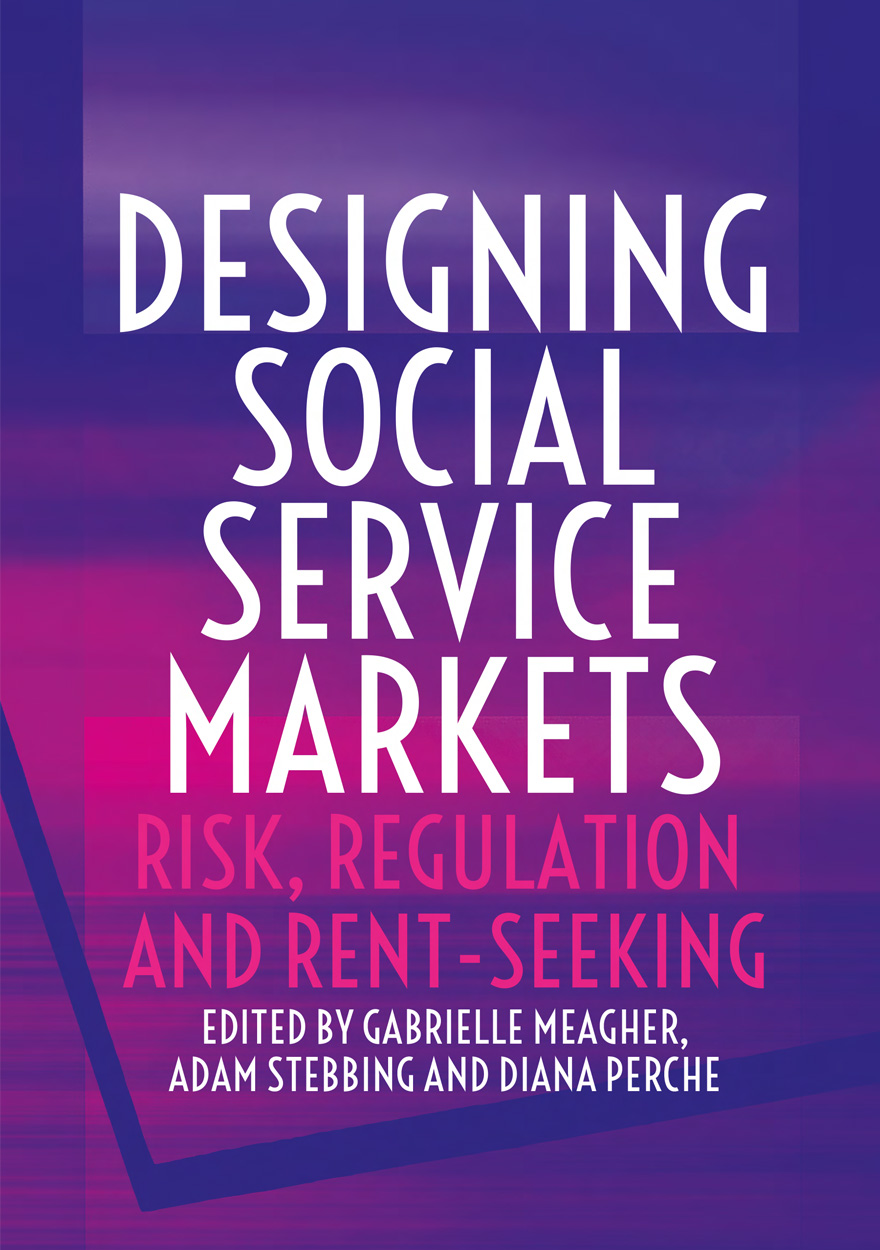
Designing Social Service Markets »
Risk, Regulation and Rent-Seeking
Publication date: September 2022
Governments of both right and left have been introducing market logics and instruments into Australian social services in recent decades. Their stated goals include reducing costs, increasing service diversity and, in some sectors, empowering consumers. This collection presents a set of original case studies of marketisation in social services as diverse as family day care, refugee settlement, employment services in remote communities, disability support, residential aged care, housing and retirement incomes. Contributors examine how governments have designed these markets, how they work, and their outcomes, with a focus on how risks and benefits are distributed between governments, providers and service users. Their analyses show that inefficiency, low‑quality services and inequitable access are typical problems. Avoiding simplistic explanations that attribute these problems to either a few ‘bad apple’ service providers or an amorphous neoliberalism that is the sum of all negative developments in recent years, the collection demonstrates the diversity of market models and examines how specific market designs make social service provision susceptible to particular problems. The evidence presented in this collection suggests that Australian governments’ market-making policies have produced fragile and fragmented service systems, in which the risks of rent-seeking, resource leakage and regulatory capture are high. Yet the design of social service markets and their implementation are largely under political control. Consequently, if governments choose to work with market instruments, they need to do so differently, working with principles and practices that drive up both quality and equality.



